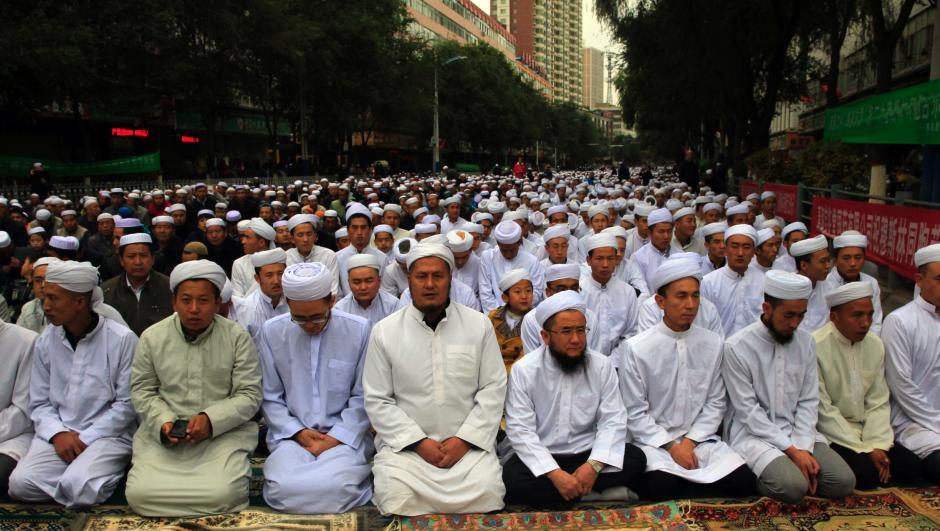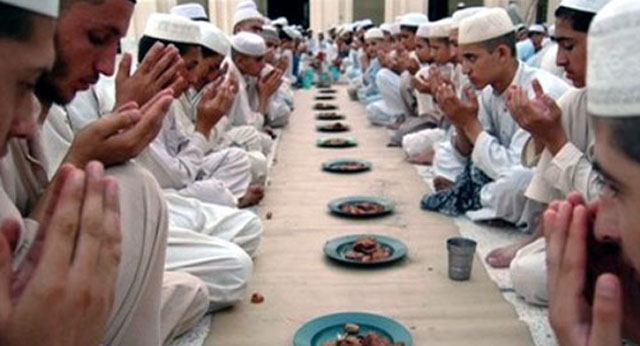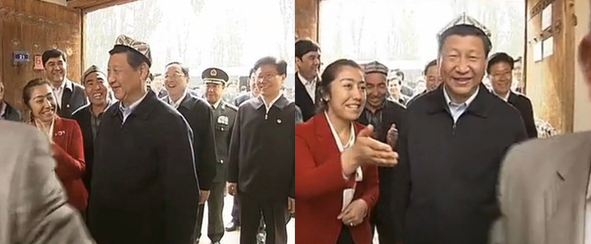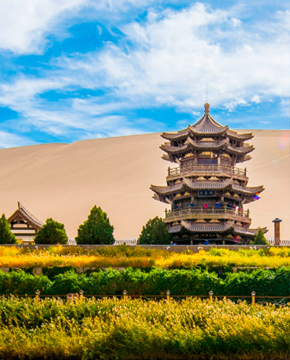
The Korban Festival
The festival, which falls on December 10th based on Islamic calendar, is a grand traditional holiday for nationalities who believe in Islamism in Xinjiang. “Korban” in Arabic means “sacrifice” and “dedication”.
On the first morning of the festival, Muslim masses will takivale a bath and change clothes before making a service in mosque, chanting Korban, visiting tombs in memory of their ancestors. Prior to the festival, every household will make a general cleaning, paper pastries, fly “Sanzi”, baked nan r Uyger bread and make new dress. Coming back home upon service, they start to slaughter cattle and sheep; boil meat and cook dinner to entertain guests with wonderful meals. The whole festival is full of joyful atmosphere to the accompaniment of songs and dances.
Rozah Festival
“Rozah” is a Persian word meaning “fast”. In line with Korban, adult Muslim with no exception shall fast for a month. Fast , as an important religious ritual of Muslim is done in September of solar year to Islamic calendar. It is done in a serious and sacred atmosphere for the month, after which comes the festival of Fast-breaking.

Norus Festival
As a new year celebrated by Uyger, Kazak and Kyrgyz people about 21st , March or during the period from 3rd to 23rd . March of the Gregorian calender, on the coming this day, wearing the splendid attire and greeting the new year, they take the special Food-Keque. In a pasturing area, herdsmen usually make a fire for jumping over in the hope if getting rid of bad luck, serious illness and tragedies and welcoming a peace, happiness and bumper harvest in the year to come.
Nadam Fair
Nadam, amusement and entertainment in Mongolian language, regarded as a grand Mongolian festival, it is celebrated on 4th June of lunar calender. The origin of this festival traces back to as early as the Genghis Khan's time. After conquering Hualazimo Kingdom, a Nadam Fair was held in Xinjiang and an archery match was performed . Up to the period of the Ming and Qing dynasty(1368-1911A.D), other activities were added such as horse racing, archery, wresting , chess-playing, story-telling and dancing . Today, a number of novelties, camel-racing, yak-racing and collie racing are great fun in the fair.
Atlas Cloth
The word Atlas means in Uyger language “tie-dyed silk fabric”. Atlas is one of the traditional products of Hotan. It has a history of over 2,000 years. The texture of Atlas is soft, light and graceful. Local Uyger girls and ladies like the Atlas silk cloth very much. At the same time many tourists like to buy it as a souvenir.
Hotan Jade
Hotan ‘s rich jade resources are mainly derived from Kunlun Mountain, which earned Hotan the reputation of “Jade Mountain” in ancient times. The most famous kinds of Hotan jade are suet jade, black jade , and jadeite.
Uyger Hat
The Uyger people, both old and young, men and women, like to wear the four-or five-angled embroidered hat all year round . These hats have become the symbol of the Uyger people. The Uyger hats, knows as “dopa”, are exquisite handicrafts articles. Made with exquisite workmanship they are brightly colored and decorated with beads.




